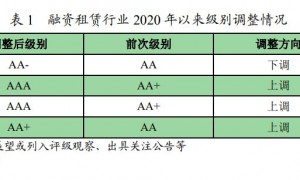|
The Miranda Warning
The Constitution reserves many rights for those suspected of crime. One of the fears of the Framers was that the government could act however it wished by simply saying an individual was a suspected criminal. Many of the rights in the Constitution and the Bill of Rights, such as habeas corpus, the right to remain silent, and the right to an attorney, are designed to ensure that those accused of a crime are assured of those rights.
Police were able to take advantage of the fact that not everyone knows their rights by heart. In fact, it is likely that most citizens could name a few of their rights as accused criminals, but not all of them. The police's position was that if the accused, for example, spoke about a crime without knowing that they did not need to, that it was the person's fault for not invoking that right, even if they did not know, or did not remember, that they had that right.
This was the crux of the issue in Miranda v Arizona. In 1963, Ernesto Miranda was accused of kidnapping and raping an 18-year-old, mildly retarded woman. He was brought in for questioning, and confessed to the crime. He was not told that he did not have to speak or that he could have a lawyer present. At trial, Miranda's lawyer tried to get the confession thrown out, but the motion was denied. In 1966, the case came in front of the Supreme Court. The Court ruled that the statements made to the police could not be used as evidence, since Miranda had not been advised of his rights.
Since then, before any pertinent questioning of a suspect is done, the police have been required to recite the Miranda warning. The statement, reproduced below, exists in several forms, but all have the key elements: the right to remain silent and the right to an attorney. These are also often referred to as the "Miranda rights." When you have been read your rights, you are said to have been "Mirandized."
Note that one need not be Mirandized to be arrested. There is a difference between being arrested and being questioned. Also, basic questions, such as name, address, and Social Security number do not need to be covered by a Miranda warning. The police also need not Mirandize someone who is not a suspect in a crime.
As for Ernesto Miranda, his conviction was thrown out, though he did not become a free man. The police had other evidence that was independent of the confession, and when Miranda was tried a second time, he was convicted again. After release from prison, Miranda was killed in a barroom brawl in 1976.
The following is a minimal Miranda warning, as outlined in the Miranda v Arizona case.
You have the right to remain silent. Anything you say can and will be used against you in a court of law. You have the right to speak to an attorney, and to have an attorney present during any questioning. If you cannot afford a lawyer, one will be provided for you at government expense.
The following is a much more verbose Miranda warning, designed to cover all bases that a detainee might encounter while in police custody. A detainee may be asked to sign a statement acknowledging the following.
You have the right to remain silent and refuse to answer questions. Do you understand?
Anything you do say may be used against you in a court of law. Do you understand?
You have the right to consult an attorney before speaking to the police and to have an attorney present during questioning now or in the future. Do you understand?
If you cannot afford an attorney, one will be appointed for you before any questioning if you wish. Do you understand?
If you decide to answer questions now without an attorney present you will still have the right to stop answering at any time until you talk to an attorney. Do you understand?
Knowing and understanding your rights as I have explained them to you, are you willing to answer my questions without an attorney present?
LINK:http://www.usconstitution.net/miranda.html |
 融资租赁行业2023年回顾与2024年展望
联合资信主要观点:
2023年10月下发了金融租赁公司管理办法,体现了监管机构对
融资租赁行业2023年回顾与2024年展望
联合资信主要观点:
2023年10月下发了金融租赁公司管理办法,体现了监管机构对
 2023年租赁业调查报告(毕马威)
毕马威连续第5年发布租赁业调查报告。本刊结合租赁行业热点话题提供专业洞察,并汇总
2023年租赁业调查报告(毕马威)
毕马威连续第5年发布租赁业调查报告。本刊结合租赁行业热点话题提供专业洞察,并汇总
 2021年度融资租赁业调查报告
2021年度融资租赁业调查报告
下载地址:原链接
2021年度融资租赁业调查报告
2021年度融资租赁业调查报告
下载地址:原链接
 2021年融资租赁行业信用风险展望
一、融资租赁行业 2020 年信用风险回顾
1.信用等级迁移及风险事件回顾
202
2021年融资租赁行业信用风险展望
一、融资租赁行业 2020 年信用风险回顾
1.信用等级迁移及风险事件回顾
202
 《金融租赁行业发展报告(2007-2017)》
金融租赁行业发展报告(2007-2017)
《报告》主体内容分为导言、发展篇、环境篇、资产
《金融租赁行业发展报告(2007-2017)》
金融租赁行业发展报告(2007-2017)
《报告》主体内容分为导言、发展篇、环境篇、资产